|
6 December marks 80 years since Ruperra Castle was gutted by fire during the second world war. To commemorate the event we are telling stories from our book, Ruperra Castle War and Flames 1939-46.
Some had been part of the BEF, the expeditionary force intended to drive the Germans back from France. These soldiers after escaping from Dunkirk came to Ruperra and stayed for a while to recover while their units were being reformed.
After landing, a train took the unit to Hereford where they slept on the race course in the open air. Moving on to Ruperra in the morning they were given just two blankets to sleep on the floor in the Castle, but they didn’t have to go outside for toilets or washing and their own cooks made the food. No baking was done since all the equipment had been left in France. Unfortunately, because the Germans were expected to invade Brittan at any minute they had to get up in the early hours of the morning, dress in full kit, proceed to sit in the parked coaches for a couple of hours and then have drills to occupy them. As Norman’s unit was lined up ready to move out they saw the Second Field Bakery unit was moving in - also from Dunkirk. John Rogers, a baker from Deal in Kent, a member of the 2nd and 3rd units had gone over to France in 1940 with the BEF and had the same experience. At two o’clock one morning they were called out of the cotton mill bakery and issued with 30 rounds of ammunition for their rifles because the Panzer tanks were coming. Leaving behind the dough in the troughs, they had to get down in the ditches either side of the road with their rifles and bayonets. Then back to the mill where the dough was all blown up all over the floor to start baking again.
The NCOs, being away from the main unit, had bedside lights. One of the beds in his two tiered bunk was empty so John fixed a hanging wire so that after lights out he could switch on and lie in bed reading. One night – he connected a screw bulb. Flash! His hand went blue and all the buildings around the Castle went into darkness. There were panic stations and no more bedside lamps! John returned to Ruperra in 1943 after the Castle had been burnt down and slept under canvas in the grounds. He said that this time the mobile bakery equipment was at Ruperra which became the number one bakery training base. Men were being recalled from the Middle East and from various parts of England. We baked under marquees and the ovens stayed on the trailers with canvas over. We did the baking out in the field under canvas.
John said that they trained a whole American unit at Ruperra. They were sleeping under canvas too but they had their own quarters. Being with the Americans was an interesting experience. There was always plenty of food. Big bowls of sugar and ‘Help yourself!’ packets of Camels, and plenty of chicken! At the end of the war, John did some very valuable work in France clearing the airstrips of mines. While they were waiting for bakery equipment to arrive a group were given a three ton lorry, a length of chain, and a sergeant. The retreating German army had put poles in the airfields to stop our planes from landing. We had to fix our chain to the poles so as to pull them up.
George Archer himself from Machen had joined up into the RASC when he was twenty, and then worked as a mobile bakery trainer.
When he spent time in Egypt the mobile bakery was used as there were a lot of British soldiers still out there after January 1946. He was up near the Aswan dam and it was so hot that the bread used to go bad because it couldn’t cool down properly. They realised eventually that that was why the Arabs ate naan bread! Iory Pearce from Chirk was already a baker before he joined up aged 18 in 1944, but was sent to join a bakery unit being formed at Ruperra. The Castle was already burned down when his unit was there and they had to fall in and be checked every morning on a bit of square in front of the Castle. A nissen hut along side was used as a dance hall with a piano and drums, an eating place, the mess and the NAAFI shop. He didn’t remember doing any baking at Ruperra but from there he visited Barry, Penarth, and the Drill Hall in Caerphilly where he met his brother in the Royal Welsh Fusiliers. The 40 men in his unit were sent overseas in 1944/45 or ‘round the world' as he described it. Having hardly been out of Chirk, all these places seemed so strange. They visited India, Ceylon, the South China Sea and Japan. In India, on twenty mile route marches about 7 o’clock at night at sundown they’d often be walking alongside hundreds of camels in a camel train. While at Hong Kong he went up the Yangtze to Shanghai and from there to Kure in Japan where he met his brother again! He took him to see Nagasaki after the bomb. There was nothing there except one concrete building left standing! He wondered how he’d managed to find his brother in Caerphilly, and then amongst all the hundreds and thousands of soldiers in the Far East, in Yamaha and Kure! When at last he got demobbed all he’d done was bake bread in Portadown in Ireland and in Hongkong.
Towards the end of the war, they we were in Weimar where we joined up with the Russians. The Germans were retreating all the time and our job was to clear them out of the houses to ensure that there were no soldiers with ammunition hiding there, and that the owners of the houses were safe when so much looting was going on. 80 years on and Ruperra Castle is still a ruin at risk of collapse - help Ruperra Castle Preservation Trust save the Castle and surrounding buildings and gardens by campaigning to secure them to use for community benefit, and to ensure a better future for our precious local heritage. Help us secure a future for this important monument - become a member before the end of 2021 and we will send you a free copy of our book – Ruperra Castle War and Flames 1939-46. You can also buy the book separately for £6.
0 Comments
Your comment will be posted after it is approved.
Leave a Reply. |
Archives
February 2024
Categories
All
|
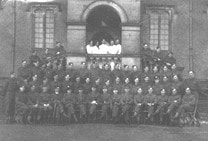
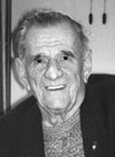
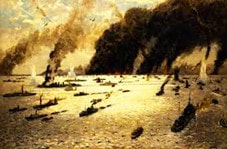
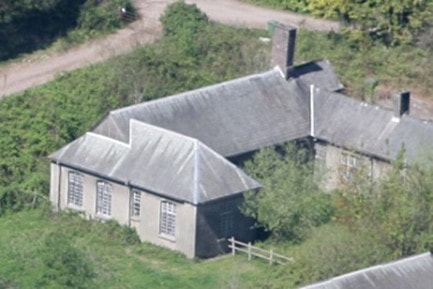
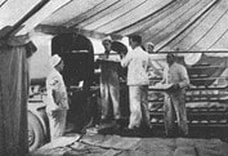
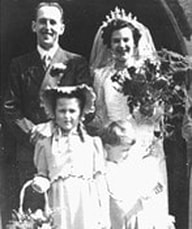
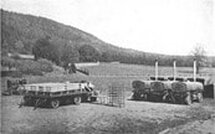
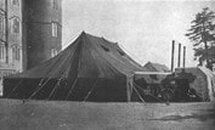
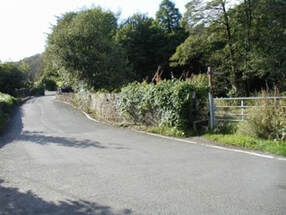

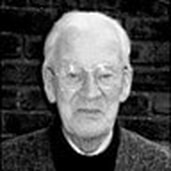
 RSS Feed
RSS Feed
